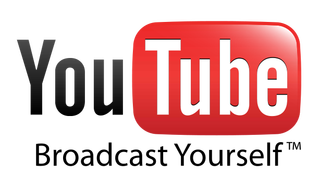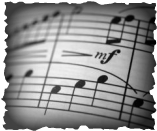About, the creation of, and the legacy of MTV
With a mix of YouTube.

MTV was thought up by Robert Pittman. He thought that the generation who grew up with television, would begin to communicate in different ways. One of the ways he foresaw communication changing to was through music. On August 1, 1981 MTV debuted on air with the first music video from the band The Buggles with "Video killed the Radio Star". After the debut, MTV's popularity skyrocketed. MTV was successful in spreading the postmodern movement. At first MTV was mainly "AOR", or Album Oriented Rock. The videos were cycled and varied from three to five minutes in length. By 1984, MTV was the highest rated program. This resulted in the death of Ted Turner's Cable Music Channel. MTV then bought what was left and created VH1. VH1 first aired January 1, 1985. In July of 1985, MTV hosted a concert that was broadcasted in 150 different countries and is estimated to have brought in over one hundred million dollars.Then MTV began to be recognized on a global scale, first starting with Japan in 1984. Europe, Latin America, and Asia soon followed in becoming viewers of MTV. Today, MTV is known for music, and for the reality television shows that it hosts. Some argue that radio did not die because of MTV, but was forced to change and adapt to appeal to the population (TV and Radio). Frontline, the PBS investigative team, did a series of pieces on what they dubbed "The MTV effect".
All information on MTV taken from: "Transforming America" by Robert Collins
YouTube first went online in February of 2005, and was created by Chad Hurley, Steve Chen, and Jawed Karim. A couple months later (April) the first video is posted of Karim in front of the San Diego Zoo. In October of the same year, Nike began to advertise on the website. This video featured a soccer player doing the samba with a soccer ball. In December of 2005, YouTube showed a Saturday Night Live skit that attracted over two million views! Later, the video was taken down at NBC's request. YouTube is bought by Google in 2006. Entertainment was not the only purpose of YouTube. In July of 2007, YouTube hosts a presidential debate with CNN. The next year 7 out of the 16 candidates announce their running through YouTube videos. Today, YouTube is the go-to site for music, memes, and even just random videos of people being people. The videos mentioned can be found under the "video tab" at the top of the page.
All information on Youtube taken from: "The Brief But Impactful History of Youtube"
All information on MTV taken from: "Transforming America" by Robert Collins
YouTube first went online in February of 2005, and was created by Chad Hurley, Steve Chen, and Jawed Karim. A couple months later (April) the first video is posted of Karim in front of the San Diego Zoo. In October of the same year, Nike began to advertise on the website. This video featured a soccer player doing the samba with a soccer ball. In December of 2005, YouTube showed a Saturday Night Live skit that attracted over two million views! Later, the video was taken down at NBC's request. YouTube is bought by Google in 2006. Entertainment was not the only purpose of YouTube. In July of 2007, YouTube hosts a presidential debate with CNN. The next year 7 out of the 16 candidates announce their running through YouTube videos. Today, YouTube is the go-to site for music, memes, and even just random videos of people being people. The videos mentioned can be found under the "video tab" at the top of the page.
All information on Youtube taken from: "The Brief But Impactful History of Youtube"
Effects of MTV, YouTube, and a mix of controversy
The first effect of MTV was the ability to advertise through music videos and promote items through another visual fashion. For example, having a Coca-Cola can conveniently placed on a table during a music video. Advertising could be something as simple as wearing brand names. MTV was one of the indicators of what was "in" and "hip", or what the companies were trying to sell the viewers. Advertising later got MTV in trouble when some artists did not want to have sponsors, or company adds inside of their music videos. One of the loudest artists against the internal advertising was Neil Young. His controversial video, that MTV refused to air, explicitly stated he did not want to advertise in his music or videos. Young later called MTV out asking " if the M in MTV stood for music or money". The situation did not change and MTV continued to "rake in the dough", to fall back on a common colloquialism. MTV acted as a media source too. All the latest music was displayed on MTV, and shown to the public. Another part of MTV was that it was "slow" to give space on their channel to African Americans. Two years after the creation of MTV, African Americans were still not on MTV. A singer, Rick James was quoted saying "They probably started out with a requirement of no African Americans. They're catering to a white audience". Other singers and rock stars, like David Bowie, agreed with this sentiment. That all changed when Micheal Jackson came onto the scene in 1983. He was, as writer Richard Collins puts it, " the biggest entertainment superstar of the era". Micheal Jackson also changed how advertising was used in the music video, while giving a whole new artsy take on how music can be seen visually. Micheal Jackson did more for music than just that. He also opened the door for rap music, which was predominantly dominated by African Americans at the time. Rap then became a big part of the music world. Rap became increasingly more obscene, violent, and intense as time went on; the lyrics revealing the harsh lives of the singers themselves. By 1986, rap had been integrated fully into the culture of MTV, and had become one of the cornerstones of music today. YouTube has had effects as well. YouTube has become the MTV to the common, everyday person. Anyone can create an account, upload their own videos, and share them with their friends, or the world if they chose to do that. On the other hand, YouTube has become a way for people to get movies, music, and soundtracks without paying for them with the help of YouTube converters. These converters can take a YouTube video and change it into a variety of different formats, including MP3 and FLV. Some of these sites can be taken down, but there is an abundance of the websites that offer converting. In addition to stealing, there is another risk with converters. There is a possibility that one could download a virus or spyware. Still some people continue to use converters despite the risk.
All information on MTV taken from: "Transforming America" by Robert Collins
All information on MTV taken from: "Transforming America" by Robert Collins

